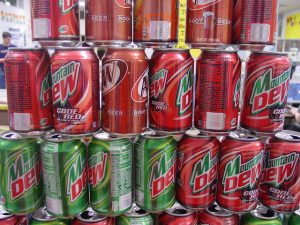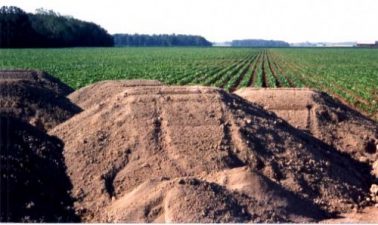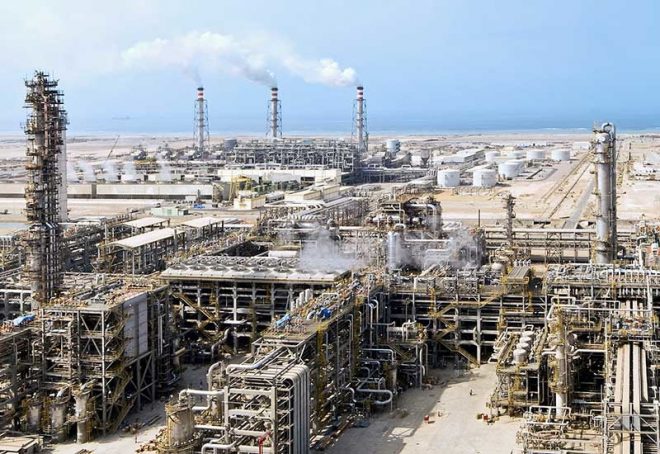
Middle East Records Some of the Highest Global SO2 Emissions
The Centre for Research on Energy and Clean Air– CREA and Greenpeace India released their report about Ranking the World’s Sulphur Dioxide Emissions Hotspots 2019-2020, which revealed the emissions of this toxic gas resulting annually from anthropogenic activities in the energy, oil, gas and smelting sectors.
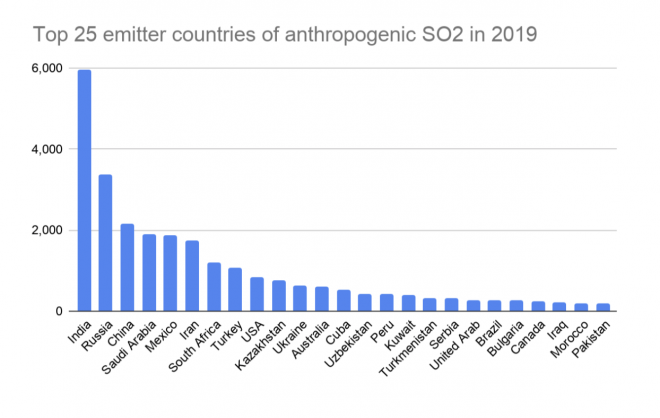
Despite the general decrease in SO2 emissions around the world, the Middle East is still one of the worst polluted regions, specifically emissions around the Gulf region which did not witness any significant change between 2018 and 2019.
Ahmad El Droubi, Senior Campaigner – Greenpeace MENA said: ”We issue this kind of report as we believe that the measurement and tracking of air quality should be a priority. Sulfur dioxide is a colourless air pollutant that is invisible to the human eye, widespread and hazardous to human health. Breathing SO2 increases the risk of health conditions including stroke, heart disease, asthma, lung cancer and premature death.”
For this CREA/Greenpeace report, researchers used satellite data and a global catalogue of SO2 emissions sources from the United States National Aeronautics and Space Administration (NASA) to detect emissions hotspots. The data was analysed to identify source industries and emissions trends.
“Despite the global drop in emissions by 47.25% since 2005, the Middle East and North Africa region recorded a decrease of only 8.5% in the same period. And the report did not find any significant change between the years 2018 and 2019, and that the Gulf remains one of the most polluted regions with SO2 and is a major hotspot of global emissions.”
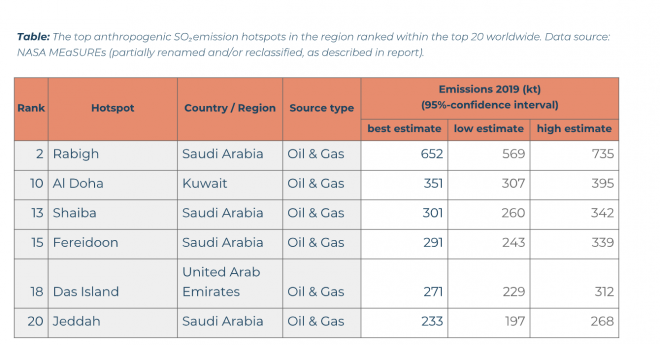
The report revealed that Saudi Arabia recorded the highest levels of sulfur dioxide emissions in the Middle East and North Africa in 2019, followed by Kuwait, the UAE, Iraq and Morocco.
The UAE and Iraq witnessed a decrease in the emissions levels between the years 2018 and 2019, however this change was within the range of annual variability. The levels of emissions of this gas in Saudi Arabia and Kuwait did not record any significant change in the same period. Morocco recorded an increase of 15% in the levels of emissions of sulfur dioxide between 2018 and 2019.
The Norilsk smelter site in Russia was the biggest source of anthropogenic SO2 emissions in the world in 2019, the Rabigh oil and gas hotspot in Saudi Arabia ranked second. It is pictured above.
Dangers of sulfur dioxide
SO2 is a toxic gas responsible for the smell of burnt matches. It is released naturally by volcanic activity and is produced as a by-product of copper extraction and the burning of fossil fuels contaminated with sulfur compounds.
Sulfur dioxide causes a range of harmful effects on the lungs, as the EPA’s most recent review of the science concluded: Wheezing, shortness of breath and chest tightness and other problems, especially during exercise or physical activity. Exposure to SO2 likely makes Covid infections worse or more dangerous.
While sulfur dioxide isn’t a direct greenhouse gas like carbon dioxide or methane, it is considered an indirect greenhouse gas. Sulfur dioxide is regarded as an indirect greenhouse gas because, when coupled with elemental carbon, it forms aerosols.

